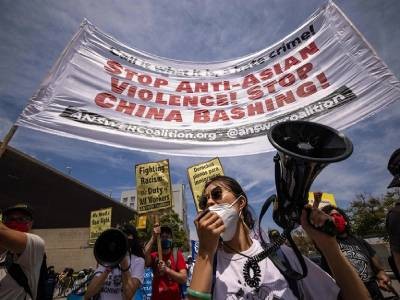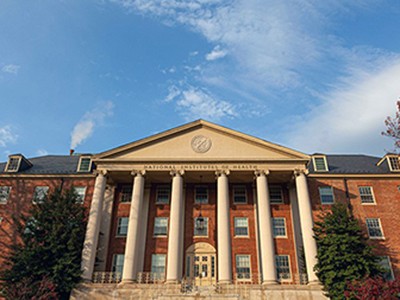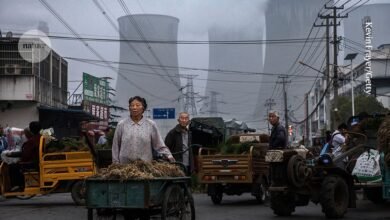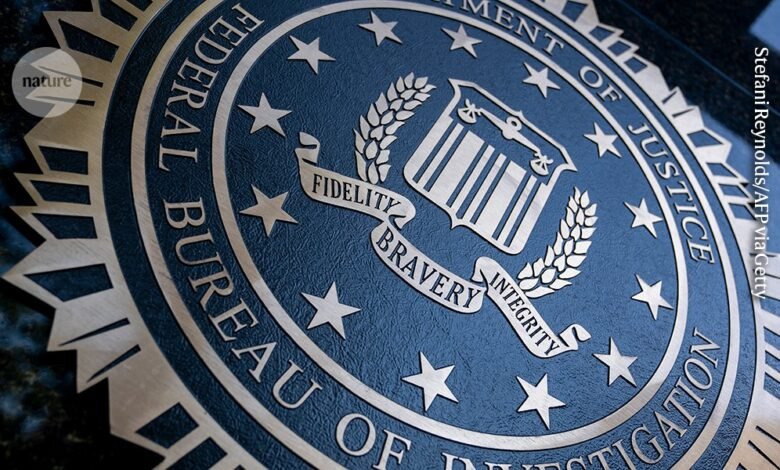
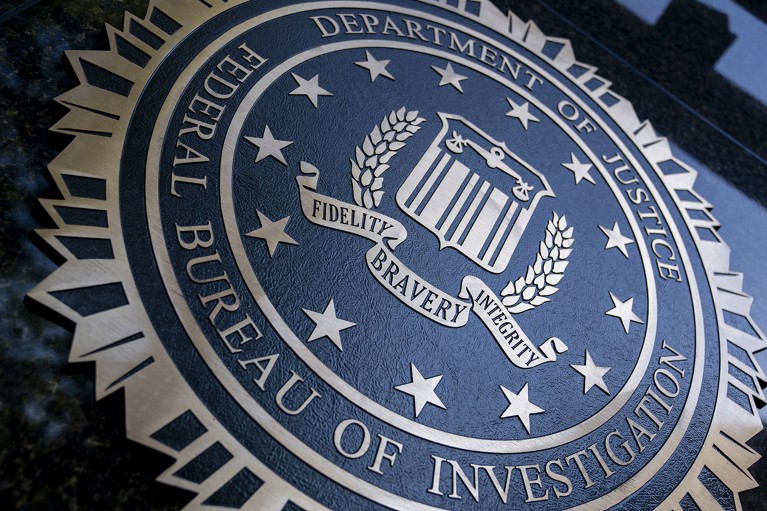
The FBI arrested a number of scholars of Asian descent under a national security programme called the China Initiative, which ran from 2018 to 2022.Credit: Stefani Reynolds/AFP via Getty
In a rare meeting between the US Federal Bureau of Investigation (FBI) and the academic community on Thursday, members of the FBI sought to reassure researchers of Asian descent that their concerns over discrimination are being heard. The 6 June public forum, held at Rice University in Houston, Texas, was lauded by participants as an important step in building trust, though several said much more work remains to be done.
China Initiative’s shadow looms large for US scientists
“We want you to feel comfortable. That’s why we’re here,” said Douglas Williams, special agent in charge of the FBI’s Houston field office, which, among other things, investigates hate crimes based on ethnicity. “More importantly, we want you to trust us, so that when something does happen in this community, which I believe it does, that you feel comfortable calling us and that we can investigate it.”
The two-hour session, sponsored by the Asian Pacific American Justice Task Force and others, was organized in response to fears among students and professors of Asian descent, which have flared in the United States in recent years. One reason for the concerns is the China Initiative, a programme launched in 2018 by the US Department of Justice (DoJ) under Donald Trump’s administration. The initiative aimed to curb the theft of US scientific research by the Chinese government, and saw a number of scientists of Chinese descent arrested by the FBI and swept into criminal court. Most were eventually acquitted or had their cases dropped. The DoJ discontinued the initiative in 2022, acknowledging that cases against the researchers triggered a perception of racial bias.
But scrutiny of Chinese-born scholars by the US government seems to have continued. In April, the Chinese embassy of the United States said that since July 2021, at least 70 foreign students with valid documents have been turned away at US airports and forced to fly to China. David Donatti, a senior staff attorney at the American Civil Liberties Union (ACLU) of Texas, a non-profit organization, said at the forum that those students, including fifth-year PhD students working in the United States and ready to defend their dissertations, were interrogated and deported without explanation. Many face five-year bans on entry to the country.
Feeling unwelcome
Gisella Perez Kusakawa, executive director of the Asian American Scholar Forum, a non-profit organization based in New York City, said that ending the China Initiative was a crucial step towards de-escalating tensions and decriminalizing Asian scholars, but only a single step. “There is still significant progress that needs to be made to ensure that the US is a welcoming environment that can attract and retain the best and brightest talents,” she said.
US universities call for clearer rules on science espionage amid China crackdown
According to a survey of more than 1,300 US faculty members of Chinese descent that her group conducted between December 2021 and March 2022, 89% said they wanted to contribute to US leadership in science, but 42% felt fearful of conducting their research, with around half saying their fear led them to avoid applying for federal grants. About 61%, particularly younger researchers, said they felt pressure to leave the country.
FBI representatives said that while their charge includes protecting the United States from foreign threats, including technological espionage, it also includes protecting the civil rights of all individuals in the country. That includes protecting Chinese citizens working in the United States, said Kelly Choi, supervisory special agent at the FBI’s Houston Field Office — although she made a point that the protection offered would be against any attempt by the Chinese government to harass or silence those individuals.
Although the FBI investigates crime, it is not in charge of screening people coming into the United States. That responsibility falls under the purview of US Customs and Border Protection (CBP), an arm of the Department of Homeland Security (the FBI is part of the DoJ). Steven Pei, an electrical engineer at the University of Houston, in Texas, who moderated the forum, told Nature that although the CBP had been invited to the panel, it had declined. The CBP did not respond to Nature’s request for comment before this story published.
The Department of Homeland Security created an Academic Partnership Council last year, with members including the presidents of US universities and higher education groups, to make recommendations to the department about issues that involve it and academia. Earlier this week, the council released a report from its Foreign Malign Influence in Higher Education subcommittee that, among other things, recommended more training for border officials about the role of travel in academic research.
Border protection
Donatti of the Texas ACLU said that people have little recourse at the US border. Technically, a person who has landed at the airport but hasn’t made it through the immigration process is still outside the country, and therefore rules about probable cause and access to an attorney aren’t in effect. He advised travelling scholars of Asian descent to carry a letter from a lawyer saying that they have legal representation and one from their university saying they have a position at that institution. It could help, he said, but it still provides no guarantees of protection. “It used to be that coming to the United States was a gold standard,” he said. “Now it is terrifying because you truly do not know if you begin your studies, if you will be able to re-enter the United States.”
When contacted by Nature, Qin Yan, president of the Asian Faculty Association at Yale University in New Haven, Connecticut, who helped to organize the forum, called for direct dialogue with CBP representatives to address border issues. He also expressed worries about other efforts to tamp down foreign influence, such as a Florida law that limits universities’ ability to recruit students and faculty members from China and other countries of concern. “We are still a long way from repairing the damage caused by the China Initiative. The chilling effects will last a very long time,” he added.
Source link
